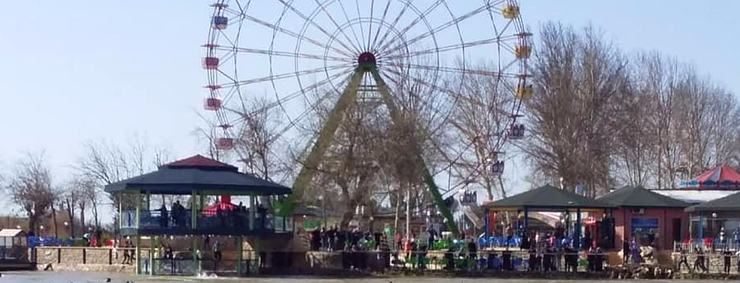
Middle East Center for Reporting and Analysis
The deaths of over 100 people on a ferry ride to Umm al-Rabeein island on March 21 in Mosul has led to protests and the likely dismissal of the governor of Ninewa province. Two years after the liberation of Western Mosul from ISIS the protests symbolize growing anger over corruption and perceptions that the central government has not invested enough in this key city in northern Iraq.
Iraq’s Parliament met Sunday, March 24 to consider various changes in Mosul in the wake of the disaster. Mosul was badly damaged by the conflict with ISIS. Occupied from June 2014 to June 2017, it is still working to recover. Many activists in the city have attempted to rebuild the university and cultural institutions, but infrastructure is still lacking and reconstruction has been slow.

Locals are outraged and much of the rage has concentrated on local corruption, with the governor a prime target of accusations. Ninewa Governor Nawful Akub was appointed in 2015. Rasha al-Aqeedi, an expert on Mosul, writes, “Akub’s appointed was controversial from the beginning. The former governor, Atheel Al-Nujaifi was from an old Mosul family but he was forced to flee during the ISIS assault on the city. Akub was brought in from rural Ninewa,” she notes. “Nawfal assumed the governor’s post and brought in his tribal and rural tendencies and behavior.” He intervened for reconstruction projects and was accused of overseeing corruption and bribes. “Nawfal not only grew richer, but his mafia-like thuggish behavior made him a favorite for many behind-the-scenes officials in Baghdad.” His family was accused of corruption, and he positioned himself as essential to the UN and local aid projects.
The governor Nawfal Akub (نوفل العاكوب) was also fingered for connections to militias as well as the Hashd al-Shaabi, the collection of paramilitary groups called the Popular Mobilization Forces. The issue of militia involvement in corruption and the ferry sinking also had widespread ramifications in Iraq. One member of parliament accused Asaib Ahl al-Haq a pro-Iranian Shi’ite militia, of involvement in profiting from the island where the ferry disaster took place.
According to these sources, reported in Rudaw and Al-Arabiya as well as by locals, Umm al-Rabeein island was a center of corruption after these areas came under the control of militia influence following the defeat of ISIS.


The governor was accused of connections to militias.
During the war against ISIS, the PMF were not supposed to enter Mosul city. Instead the Federal Police, Iraqi counter-terrorism forces and the US-led Coalition played the central role. In rural areas around Mosul however a large number of different militia units, including Badr and Asaib Ahl Al-Haq played a role, manning checkpoints and doing other operations. Asaib Ahl Al-Haq (عصائب أهل الحق) played a role in the war against ISIS in rural areas around Mosul in Ninewa.
After the war some of the militias allegedly sought to profit off areas they ran. Accusations at Rudaw say that the militias are involved in other land deals and profiteering. Many on social media have now accused the militias of profiting off the island venture and thus contributing to the ferry disaster.
On Friday when the governor and other Iraqi politicians sought to come to Mosul they were greeted with protests. President Barham Salih left his car to walk through the crowds. Iraqi Prime Minister Adil Abdul-Mahdi has asked parliament to remove the governor. Mosul Eye, the blog that covered Mosul during ISIS occupation and continues to highlight the city’s needs has called the removal of the governor a “second liberation.” But it is not enough, the blog notes. “Arrest him, bring him to justice.” Relatives of a member of Mosul Eye’s team were killed in the ferry disaster.
Mourning continues throughout Mosul and northern Iraq. On Sunday, in the damp rain that blanketed the city, thousands turned out in black. Ali Y. Al-Baroodi, a local academic snapped photos of the crowds. They came to the campus of Mosul University, somber in the wake of the tragedy. It has cast a shadow over Newroz celebrations and also the announcement of the defeat of ISIS in Syria. The disaster may energize dissent and protests in Mosul where it could lead to a turning point two years after much of the city was liberated from ISIS.

